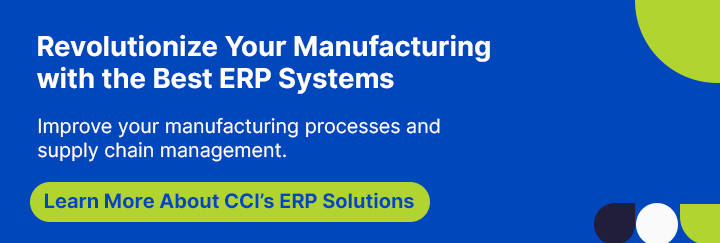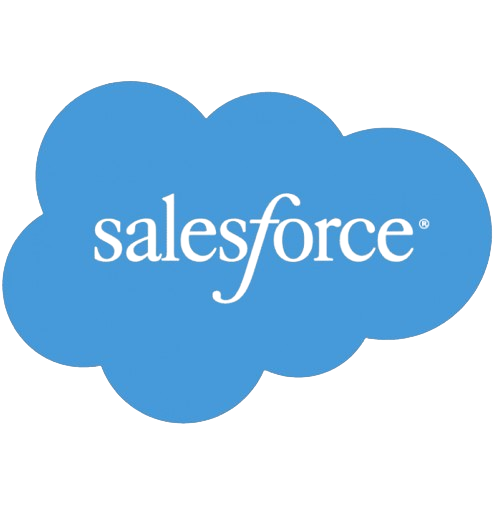ERP & Business Intelligence: Role and Benefits in 2025/2026
Updated on February 19, 2026
Businesses across all industries are under constant pressure to make quicker, smarter decisions, all while managing increasingly complex operations. In this situation, data is everything. However, having mountains of data without the right tools to interpret it can leave businesses feeling overwhelmed, missing opportunities, or falling behind competitors.
This is where Enterprise Resource Planning (ERP) and Business Intelligence (BI) step in as the perfect duo to help businesses manage their operations while revealing the power of their data. ERP systems are the backbone of an organization, integrating and automating essential business processes. Meanwhile, BI provides the analytical capabilities that turn data into actionable insights, helping organizations make sense of their operations and predict what comes next.
This blog will take you on a journey to understand how ERP and BI work together, how they’ve evolved, and what the future holds for this powerful combination.
>> Related Post: Integration of Salesforce and Google Analytics
What Is Business Intelligence (BI)?
Business Intelligence (BI) is more than just software. It’s the ability to turn data into a story that helps your business thrive. Every company has vast amounts of data, but raw data without context is like a puzzle with missing pieces. BI puts those pieces together, giving you a complete picture of your business’s past, present, and future.
BI systems allow you to track key performance indicators (KPIs), measure success, and spot potential problems before they spiral out of control. The magic of BI is that it transforms overwhelming numbers and statistics into clear, understandable insights that help you make confident decisions.
From predicting future sales based on current trends to finding out which products resonate with customers the most, BI gives you a glimpse into the future, making your business more proactive than reactive.
Components of Business Intelligence
Business Intelligence comprises several key elements that work harmoniously to give businesses a competitive edge. Let’s dive into these components:
- Data Mining involves sifting through massive amounts of data to identify hidden patterns and trends. It’s like detective work, searching for clues in your data that can lead to breakthroughs in strategy.
- Reporting: Reporting organizes and presents your data in an easy-to-understand way. Detailed reports help you get an instant snapshot of your business performance—what’s going well and where improvements are needed.
- Performance Metrics and Benchmarking: Are you meeting industry standards? Are you outperforming your competitors? Performance metrics tell you how your business stacks up and whether you’re on track to reach your goals.
- Data Visualization transforms complex data into visual formats like graphs, charts, and dashboards. These visuals make it easier to interpret data, allowing your team to understand and act on insights quickly.
- Querying and Analysis: Need a specific answer? Querying lets you ask direct questions of your data and get answers fast so that you can solve problems on the go.
>> Related Post: Top ERP Systems (Software) in 2025
What Is ERP?
Imagine running a business where all departments work in isolation, using different software and systems. Orders could get lost, miscommunication could happen, and customers could be left frustrated. Enterprise Resource Planning (ERP) solves this by integrating all critical business functions into one integrated system.
ERP creates a single source of truth for the entire organization, from finance to human resources, from inventory to supply chain management. It ensures that every department can access up-to-date information and that all processes flow smoothly. When your company’s operations are in sync, everyone from your sales team to your accounting department can perform their roles more effectively.
ERP systems are no longer just for large enterprises. Small and medium-sized businesses can also benefit from ERP, simplifying their processes and ensuring everyone works from the same playbook. In a world where efficiency is the key to survival, ERP becomes the backbone of your business.
Key Differences Between ERP and BI
While ERP and BI are crucial for modern business success, they serve different purposes. Let’s break down the key differences:
| Feature | ERP | BI |
| Primary Function | Manages day-to-day operations and processes | Analyzes data for decision-making and insights |
| Data Usage | Operational, transactional data | Analytical, historical, and real-time data |
| Focus | Process automation and efficiency | Business insights and strategic decisions |
| Reporting | Transaction-based reports | Advanced data analytics and visualization |
| Time Frame | Real-time operational processes | Both historical and real-time data |
Integration of Business Intelligence and ERP
Integrating BI with ERP is like unlocking a treasure trove of insights that would otherwise be hidden. When your ERP system works in tandem with BI, it doesn’t just manage your business—it helps you understand it better.
Imagine this: your ERP tracks customer orders, inventory levels, and financials. Meanwhile, your BI system analyzes this data to tell you which products are selling best, which suppliers deliver the fastest, and where you’re losing money. Now, you’re managing day-to-day operations and making informed decisions to optimize them.
For example, a clothing retailer using an integrated ERP-BI system can track inventory in real time while predicting which items will be in demand next season based on customer trends. It’s like having a crystal ball for your business, allowing you to plan and act quickly.
>> Related Post: Choosing an ERP System in 2025
Evolution of ERP and BI
Both ERP and BI have come a long way since their early days. Initially, ERP systems were rigid and focused purely on automating accounting, inventory management, and human resources tasks. On the other hand, BI began to analyze historical data and create basic reports.
As technology advanced, both ERP and BI evolved to meet businesses’ growing needs. Today, they are more agile, connected, and powerful than ever. Modern ERP systems have built-in BI capabilities, and BI tools can now enable real-time analytics, predictive modeling, and data visualization.
In the future, we can expect ERP and BI to become even more intertwined, with AI-driven analytics, machine learning, and automation pushing businesses further into the future of data-driven decision-making.
>> Related Post: Latest ERP Trends in 2025
Benefits of Business Intelligence in ERP
The integration of BI into ERP systems brings about several undeniable benefits for businesses:
- Better Decision-Making: Instead of relying on instinct or outdated reports, BI allows you to make decisions based on up-to-date, comprehensive data. This reduces guesswork and helps you feel more confident in your choices.
- Increased Efficiency: BI gives insights into where your processes are breaking down. With this knowledge, you can improve workflows, eliminate bottlenecks, and boost efficiency.
- Improved Forecasting: BI tools provide predictive analytics, helping businesses anticipate and prepare for trends. Whether it’s planning for increased demand or identifying potential risks, BI enables you to stay ahead of the curve.
- Enhanced Customer Satisfaction: By analyzing customer data, BI can help you personalize experiences and improve customer service, leading to greater satisfaction and loyalty.
- Cost Savings: By better understanding where resources are being wasted, businesses can cut unnecessary costs and allocate funds more effectively.
Examples of ERP & BI Integration
To bring the power of ERP and BI to life, let’s look at a few examples of how industries are benefiting from their integration:
- Retail: A retailer using ERP and BI can track customer buying habits in real-time. By understanding which products are in demand, they can adjust their inventory levels, ensuring that popular items are always in stock.
- Healthcare: Hospitals and providers use ERP systems to manage patient records, billing, and resources. When integrated with BI, healthcare organizations can analyze patient data to predict treatment outcomes, improve care, and reduce costs.
- Manufacturing: Manufacturing companies use ERP systems to monitor production processes. With BI, they can analyze which machines are underperforming and optimize their use, reducing downtime and improving productivity.
>> Related Post: Top ERP Consulting Companies in 2025
Future of Business Intelligence & ERP in 2025:
Looking ahead to 2025, the future of BI in ERP is inspiring. We’re already seeing advancements in artificial intelligence (AI), machine learning, and real-time analytics transform businesses.
In the future, AI-powered ERP-BI systems will enable businesses to predict market shifts with unparalleled accuracy. Self-service BI will become even more widespread, allowing employees at all levels of an organization to access and act on data without needing specialized technical skills.
Cloud-based solutions will continue to dominate, offering businesses greater flexibility and scalability. As more companies embrace remote work and global operations, cloud-based ERP and BI systems will become essential for staying competitive.
ERP Services Offered by CCI
At Cloud Consulting Inc. Inc., every business deserves to thrive. Our ERP solutions are designed to empower your operations and unlock the power of data. From implementation to optimization, we’ll help you succeed in every step of your digital transformation.
Salesforce Advisory Services
- Salesforce isn’t just a CRM; it’s the heartbeat of your customer relationships.
- Our advisory services ensure you’re making the most of Salesforce, helping you connect with customers more profoundly and meaningfully.
- We don’t just offer solutions—we build lasting partnerships, guiding you as you create unforgettable customer experiences.
MuleSoft Professional Services
- Imagine all your systems working together effortlessly, sharing data easily.
- MuleSoft makes this dream a reality, and our expertise helps you connect every part of your business.
- We’re here to simplify the complex so you can focus on growing and innovating.
ServiceNow Professional Services
- ServiceNow transforms your IT operations, making your processes more efficient and your teams more productive.
- With Cloud Consulting Inc. Inc., we implement ServiceNow solutions that streamline your workflows and empower your employees to do their best every day.
- Let’s give your team the tools they need to shine.
Snowflake Professional Services
- Data should back every business decision, and Snowflake gives you that power.
- Our Snowflake services help you tap into real-time insights, driving growth, efficiency, and innovation.
- Let us help you unlock the future with Snowflake’s limitless possibilities.
SAP Professional Services
- SAP is the engine that drives efficiency, agility, and innovation in your business operations.
- From implementation to ongoing support, our SAP services help your business harness the full potential of this transformative platform.
- We’re here to make your business stronger, smarter, and ready for whatever comes next.
>> Related Post: ServiceNow Knowledge 2025: Date, Registration, Tickets
Conclusion
ERP and Business Intelligence are no longer just tools but lifelines for modern businesses. As we head into 2025, integrating these systems will continue to play a pivotal role in driving efficiency, growth, and innovation. Companies that embrace ERP-BI solutions will be well-positioned to make data-driven decisions, outpace competitors, and navigate an increasingly complex business environment.
At CCI, we understand the challenges of this new era of business and are here to help you navigate them confidently. Reach out to us today, and let’s build the future together.
FAQs: ERP & Business Intelligence
Q1: What is the main difference between ERP and BI?
ERP manages day-to-day business processes, while BI analyzes data for better decision-making.
Q2: Can small businesses benefit from ERP and BI integration?
Yes, even small businesses can improve efficiency and make data-driven decisions by integrating ERP and BI.
Q3: What are the key benefits of integrating BI with ERP?
The key benefits include better decision-making, improved efficiency, cost savings, and enhanced forecasting.
Q4: How does BI help in customer satisfaction?
BI tools analyze customer behavior, enabling businesses to offer personalized services and improve customer experiences.
Q5: How does CCI help with ERP services?
CCI offers ERP implementation, integration with BI, consulting, and ongoing maintenance and support tailored to your business needs.









